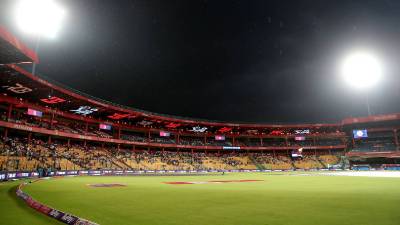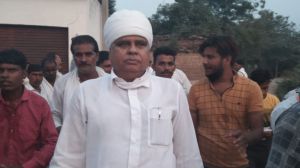A three-penny opera
Damodar was an honest man. He had the courage to admit to me that he had swallowed two thousand rupees that did not belong to him. He ought ...

Damodar was an honest man. He had the courage to admit to me that he had swallowed two thousand rupees that did not belong to him. He ought to have deposited that amount into the treasury in Chennai, since it was the government8217;s money. He ought not to have spent it on himself and his family. However, he did tell me repeatedly that the day he got his arrears from the government, he would clear his debt. But that day was not dawning as the government was taking its own time.
There are two aspects of this case. One, Damodar was the Information 038; Broadcasting ministry8217;s regional exhibition officer in Chennai responsible for organising exhibitions on India at various places in the south. He had nearly a dozen field exhibition officers working under him. These officers would move from place to place and arrange exhibitions in big halls in consultation with the state governments. The exhibits were supplied from Delhi. The halls were booked by local authorities. At big fairs, like the World Trade Fair in Delhi, where no halls were available, temporary exhibition pavilions were improvised and raised with the help of local architects and builders. At the end of those fairs, the exhibits were removed and the structures auctioned. The auction money was deposited into the local treasury to be passed on to the government8217;s account.
At one such fair held at the island ground in Chennai, Damodar failed to deposit the auction proceeds of Rs. 2,000 into the treasury. I rang him up from Delhi numerous times to ask him to do what he was expected to do. He pleaded that he would do so only after he had received his own arrears. Someone in the government had fixed his salary wrongly. In fact he was entitled to more pay. He had taken up the matter with the government, but there had only been dilly-dallying.
I argued that this was no excuse. When I failed to bring him round, I had no alternative but to bring the matter to higher notice. The I038;B secretary ordered that the case should be handed over to the special police establishment. That was done. Ironically, when the case came up before the chief presidency magistrate in Chennai, I had to appear as a prosecution witness. The magistrate imposed a fine of Rs. 2,000 on Damodar, in addition to the amount he owed to the government, and also awarded him technical imprisonment till the rising of the court. On the request of Damodar8217;s lawyer, he kept the judgement suspended for two days in order to give Damodar time to raise the money.
Damodar could not raise the money. He disappeared from Chennai. Much later, I learnt that he was caught in Hyderabad and awarded a year8217;s imprisonment. He lost his job. I can8217;t say that happened to his arrears.
Damodar was no bigwig like Sukh Ram. Nor did he have the power to allot petrol pumps. Yet he was an honest man.
- 01
- 02
- 03
- 04
- 05































